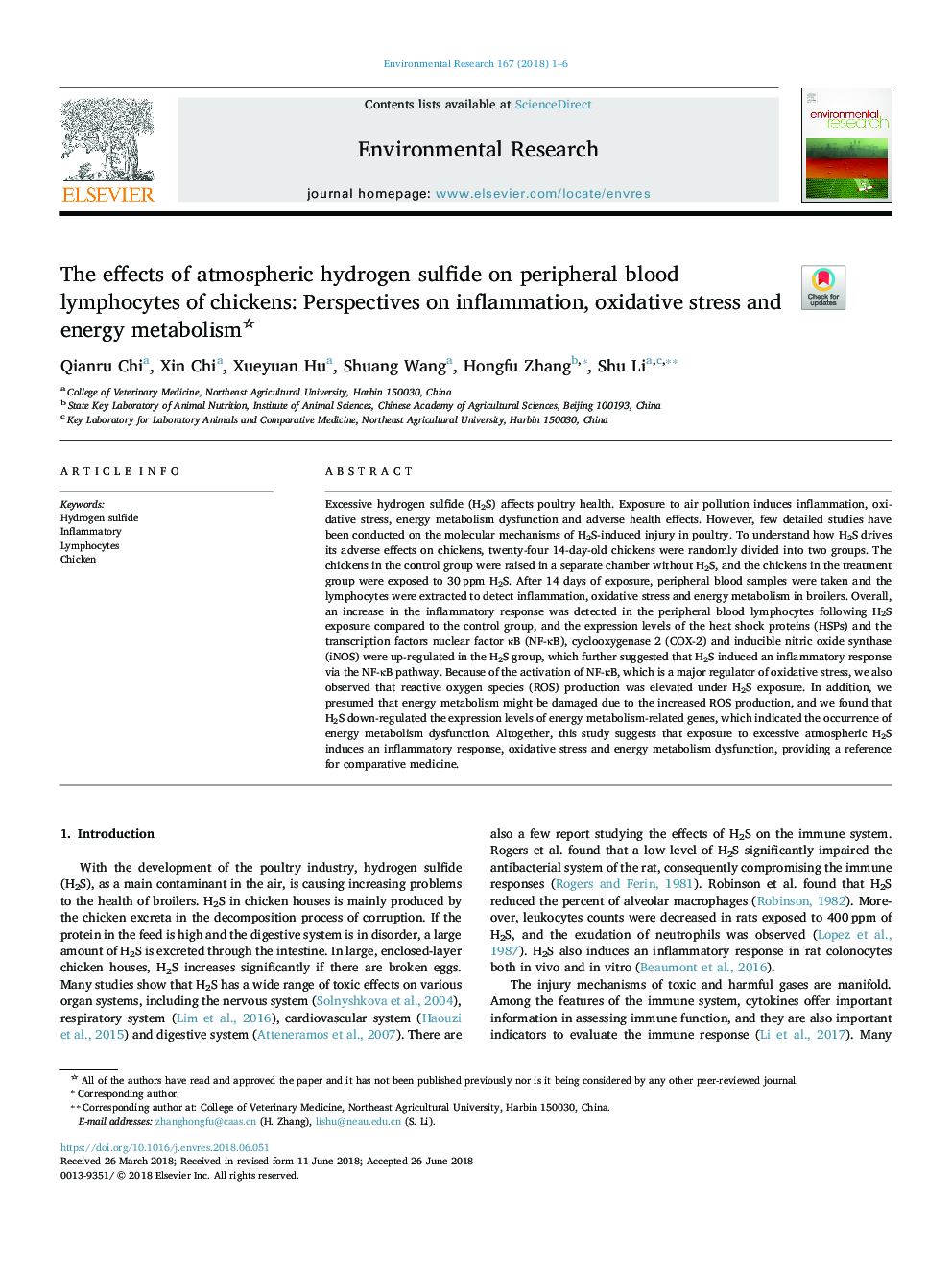| کد مقاله | کد نشریه | سال انتشار | مقاله انگلیسی | نسخه تمام متن |
|---|---|---|---|---|
| 8868807 | 1622536 | 2018 | 6 صفحه PDF | دانلود رایگان |
عنوان انگلیسی مقاله ISI
The effects of atmospheric hydrogen sulfide on peripheral blood lymphocytes of chickens: Perspectives on inflammation, oxidative stress and energy metabolism
ترجمه فارسی عنوان
اثرات سولفید هیدروژن اتم بر لنفوسیت های محیطی جوجه ها: دیدگاه های التهاب، استرس اکسیداتیو و متابولیسم انرژی
دانلود مقاله + سفارش ترجمه
دانلود مقاله ISI انگلیسی
رایگان برای ایرانیان
کلمات کلیدی
سولفید هیدروژن، التهابی لنفوسیت ها، مرغ،
موضوعات مرتبط
علوم زیستی و بیوفناوری
علوم محیط زیست
بهداشت، سم شناسی و جهش زایی
چکیده انگلیسی
Excessive hydrogen sulfide (H2S) affects poultry health. Exposure to air pollution induces inflammation, oxidative stress, energy metabolism dysfunction and adverse health effects. However, few detailed studies have been conducted on the molecular mechanisms of H2S-induced injury in poultry. To understand how H2S drives its adverse effects on chickens, twenty-four 14-day-old chickens were randomly divided into two groups. The chickens in the control group were raised in a separate chamber without H2S, and the chickens in the treatment group were exposed to 30â¯ppm H2S. After 14 days of exposure, peripheral blood samples were taken and the lymphocytes were extracted to detect inflammation, oxidative stress and energy metabolism in broilers. Overall, an increase in the inflammatory response was detected in the peripheral blood lymphocytes following H2S exposure compared to the control group, and the expression levels of the heat shock proteins (HSPs) and the transcription factors nuclear factor κB (NF-κB), cyclooxygenase 2 (COX-2) and inducible nitric oxide synthase (iNOS) were up-regulated in the H2S group, which further suggested that H2S induced an inflammatory response via the NF-κB pathway. Because of the activation of NF-κB, which is a major regulator of oxidative stress, we also observed that reactive oxygen species (ROS) production was elevated under H2S exposure. In addition, we presumed that energy metabolism might be damaged due to the increased ROS production, and we found that H2S down-regulated the expression levels of energy metabolism-related genes, which indicated the occurrence of energy metabolism dysfunction. Altogether, this study suggests that exposure to excessive atmospheric H2S induces an inflammatory response, oxidative stress and energy metabolism dysfunction, providing a reference for comparative medicine.
ناشر
Database: Elsevier - ScienceDirect (ساینس دایرکت)
Journal: Environmental Research - Volume 167, November 2018, Pages 1-6
Journal: Environmental Research - Volume 167, November 2018, Pages 1-6
نویسندگان
Qianru Chi, Xin Chi, Xueyuan Hu, Shuang Wang, Hongfu Zhang, Shu Li,
